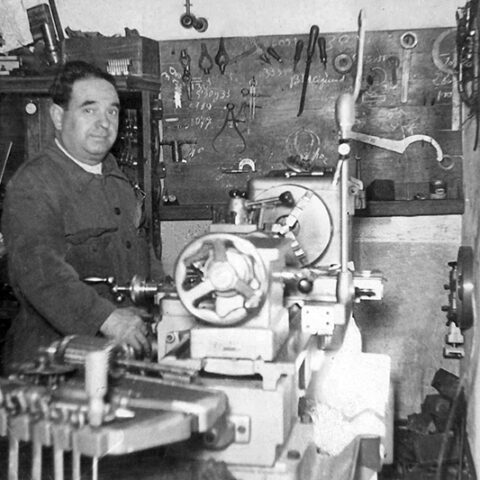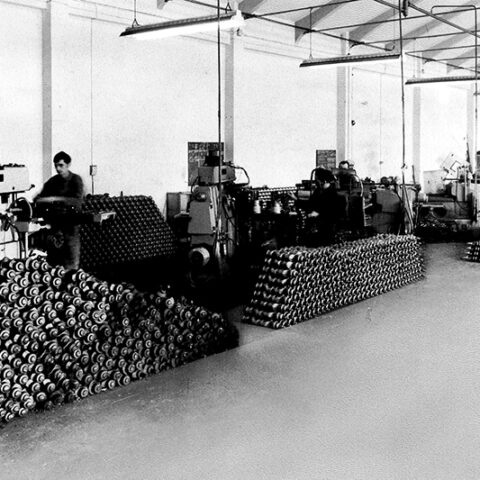SANZ, the story of an entrepreneur
How it all started
Cigüeñales SANZ S.L. was created on 22 October 1947 in a small workshop in the centre of Zaragoza, the capital of Aragon, by Vicente Irache Torres before he even turned 21.
Back then, the company mainly repaired small motorbike crankshafts then, in the early fifties, it ventured into the export market by first importing Harley Davidson crankshafts from the US which it restored then re-exported.
During the years following the Spanish Civil War, imports into Spain were tightly controlled and, like so many other companies at the time, Cigüeñales Sanz had to find ways to get round the technical shortages it faced.
Gradually, it changed from of a repair shop to a crankshaft manufacturer. The first model the company produced, by open-die forging using fairly rudimentary lathes, was for the Sanglas engine, this being a motorbike that was used for decades by the Spanish Civil Guard.
In the late 1950s, it started mass-producing large batches for industrial cooling units and ships and for white-label domestic refrigerators.




